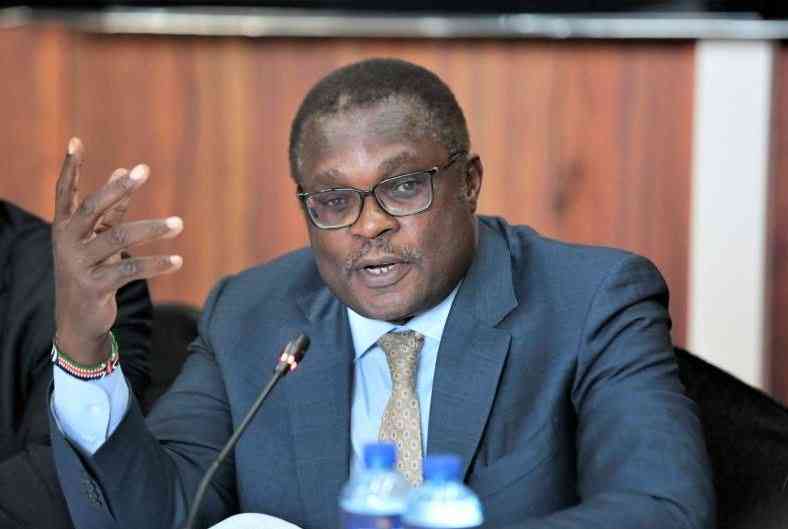Cooperatives and MSME Development Cabinet Secretary Wycliffe Oparanya has said he is committed to transforming the cooperative sector and empowering millions of small businesses to uplift the country from poverty.
Oparanya said he is determined to make a lasting impact on the lives of ordinary Kenyans. Reflecting on his first 100 days in office, he highlighted key achievements in his ministry’s transformative journey.
“In my first 100 days, we have made significant strides in improving the cooperative and MSME sector. We streamlined the cooperative registration process with a new digital registry, which enhances transparency and accessibility,” he noted.
Capacity building for cooperative leaders has also been a top priority.
“We’ve rolled out programmes to build the capacity of cooperative leaders, with a special focus on empowering the youth and women. These efforts are crucial in creating sustainable cooperative businesses,” he added.
Oparanya credited the transformative progress to a solid policy and legal foundation.
“Our progress is anchored in the Cooperative Bill 2024, currently before Parliament. We are also implementing governance reforms, including audits and restructuring key institutions like KUSCCO,” he said.
According to the CS, the ministry has successfully resolved long-standing disputes in major coffee cooperatives, such as those in Barichu Farmers ‘Cooperative Society (Nyeri) and Kangunu FCS (Murang’a), bringing relief to farmers in these areas.
“The disputes in these coffee cooperatives were longstanding, but we’ve managed to resolve them, which will improve the livelihoods of thousands of farmers,” Oparanya affirmed.
Additionally, the ministry has enhanced the liquidity of Saccos by recovering over Sh165 million in non-remitted funds held by employers.
“This recovery has significantly improved the financial health of Saccos and empowered them to serve their members better,” he noted.
One of the key challenges facing the sector in Kenya is expanding membership, particularly in rural areas. The CS outlined several strategies to address this challenge.
“We are conducting awareness campaigns to promote the benefits of cooperatives. We’re also offering incentives like low-interest loans for agriculture and agribusiness,” he said.
Cooperatives in emerging sectors like artisan fishing, mining, and avocado farming are also being registered, creating new opportunities for rural communities.
Stay informed. Subscribe to our newsletter
“We are registering new cooperatives in sectors like avocado farming, artisan fishing, and even value chains related to coffee production. This will expand the economic base of rural areas,” he added.
Oparanya praised the success of the Hustler Fund, which has provided affordable credit to millions of Kenyans majority being youth.
“Over Sh60 billion has been disbursed, and over Sh47 billion has been repaid,” he shared.
Despite the success, challenges such as financial discipline and digital literacy persist. “We are working to address these gaps by expanding MSME products under the Hustler Fund, with a particular focus on training and increasing digital literacy,” Oparanya explained.
He outlined plans to support innovation and startups on sustaining youth entrepreneurship.
“We’re partnering with stakeholders to establish innovation hubs where young entrepreneurs can access mentorship, funding, and technical support,” he said.
The CS noted that financial literacy is another crucial area which the ministry has prioritized to ensure MSMEs can grow sustainably.
This is done through organized workshops and training on essential skills like bookkeeping, budgeting, and investment management.
While acknowledging that challenges like inflation and unemployment remain, Oparanya remains optimistic about the future.

























